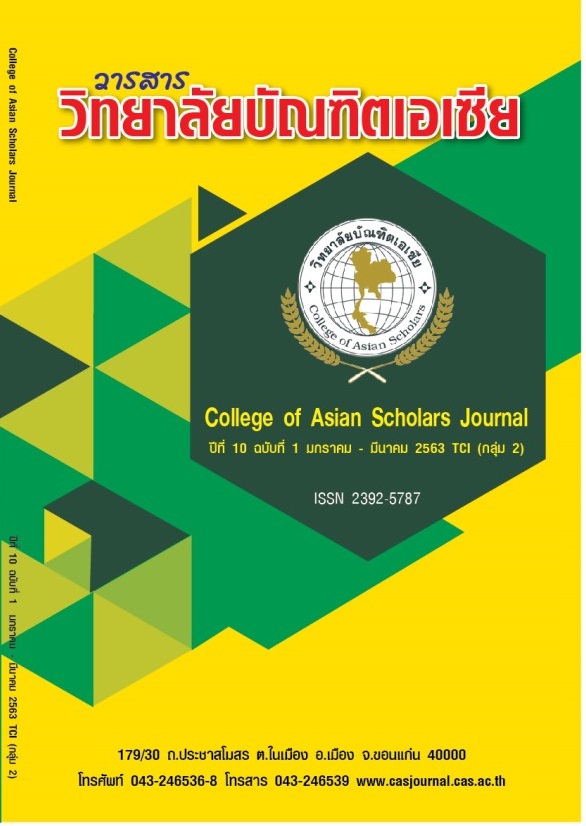ไฟล์ ดาวน์โหลด |
1585994306-10.1.9.pdf |
|||||||||
|
ชื่อผู้วิจัย ภัทรภร ชูปาน
|
|||||||||
| บทคัดย่อ ภาษาไทย | การวิจัยเรื่องนี้ มีวัตถุประสงค์ เพื่อพัฒนารูปแบบการจัดการป่าสาคูของประเทศไทยในอนาคต โดยใช้เทคนิควิธีการวิจัยอนาคตหรือที่เรียกว่า เทคนิค EDFR (Ethnographic Delphi futures research ) กลุ่มตัวอย่างประกอบด้วยผู้เชี่ยวชาญ ความสามารถและประสบการณ์ในเรื่องที่เกี่ยวข้องกับการใช้ประโยชน์ การจัดการทรัพยากรธรรมชาติและสิ่งแวดล้อม ป่าไม้และป่าสาคู จำนวน 24 คน ใช้วิธีเลือกแบบเจาะจง (purposive sampling) เครื่องมือที่ใช้เก็บข้อมูล เป็นการสัมภาษณ์และแบบสอบถามชนิดมาตราส่วนประมาณค่า การเก็บข้อมูลจำนวน 3 รอบ รอบแรกเป็นการสัมภาษณ์ แล้วนำข้อมูลที่ได้มาสร้างแบบสอบถามมาตราส่วนประมาณค่า นำไปให้ผู้เชี่ยวชาญตอบในรอบที่สองและสาม ข้อมูลที่ได้จากแบบสอบถามรอบสุดท้าย นำมาหาค่ามัธยฐาน ฐานนิยม ความต่างระหว่างฐานนิยมกับมัธยฐาน และพิสัยระหว่างควอไทล์ เพื่อสรุปรูปแบบเป็นภาพอนาคต และมีการตรวจสอบรูปแบบโดยใช้วิธีการสัมมนาแบบอิงผู้เชี่ยวชาญ (connoisseurship) เพื่อนำสู่รูปแบบการจัดการป่าสาคูของประเทศไทยในอนาคต ผลการวิจัย พบว่า รูปแบบที่เหมาะสม คือ การมีส่วนร่วมระหว่างรัฐกับชุมชนกำหนดแผนแนวทางการปลูก การขยายพันธุ์ การใช้ประโยชน์ จัดตั้งศูนย์เรียนรู้ประจำท้องถิ่น ทำให้ป่าสาคู “เป็นครัวชุมชน” พัฒนาไปสู่ครัวโลกได้อย่างยั่งยืน โดยมีองค์ประกอบหลัก คือ วัตถุประสงค์ ระบบนิเวศ หลักการทางเศรษฐกิจ สังคม การเมืองและวัฒนธรรม การจัดการสิ่งแวดล้อม และการอนุรักษ์ | |||||||||
| คำสำคัญ | ||||||||||
| บทคัดย่อ ภาษาอังกฤษ | The objective of this research was to develop sago palm forest management model of Thailand in the future model with EDFR (Ethnographic Delphi Futures Research) technique. The sample of this research was of 24 experts who were knowledgeable, capable and experienced in utilization, natural resources, environment and their relevant aspects of sago with purposive sampling. Interview and rating scale questionnaire were used as research instruments. There were three sessions in collecting data from participants. Interview was arranged at the first session to gain data; the collected date was analyzed for creating rating scaled questionnaire. The questionnaire was answered by experts in the session two and three respectively. The information obtained from informants was analyzed for statistic of median, mode, difference between mode and median and the interquartile range to summarize as future images. In addition, connoisseurship seminar was conducted to investigate templates for sago palm forest management model of Thailand in the future. The research findings revealed that appropriate model, collaboration between government sectors and community to determine planting plan, plant propagation, utilization and establishment of community learning center could turn sago palm forest into "community kitchen" to develop towards sustainable global kitchen. The main components are ecology, objective determination, principles of economy, social, political and culture, principles of environmental management and conservation. The objective of this research was to develop sago palm forest management model of Thailand in the future model with EDFR (Ethnographic Delphi Futures Research) technique. The sample of this research was of 24 experts who were knowledgeable, capable and experienced in utilization, natural resources, environment and their relevant aspects of sago with purposive sampling. Interview and rating scale questionnaire were used as research instruments. There were three sessions in collecting data from participants. Interview was arranged at the first session to gain data; the collected date was analyzed for creating rating scaled questionnaire. The questionnaire was answered by experts in the session two and three respectively. The information obtained from informants was analyzed for statistic of median, mode, difference between mode and median and the interquartile range to summarize as future images. In addition, connoisseurship seminar was conducted to investigate templates for sago palm forest management model of Thailand in the future. The research findings revealed that appropriate model, collaboration between government sectors and community to determine planting plan, plant propagation, utilization and establishment of community learning center could turn sago palm forest into "community kitchen" to develop towards sustainable global kitchen. The main components are ecology, objective determination, principles of economy, social, political and culture, principles of environmental management and conservation.
|
|||||||||
| Keyword | Ethnographic Delphi Futures Research, Sago palm forest, Sago palm forest management model, Development Sago palm forest management model | |||||||||
ภัทรภร ชูปาน
1 บทความ| ชื่อ - สกุล | วารสาร | ไฟล์ |
หน้า |
|
|---|---|---|---|---|

|
ภัทรภร ชูปาน CAS900 |
การพัฒนารูปแบบการจัดการป่าสาคูของประเทศไทยในอนาคต |

1.jpg)
1.jpg)
1.jpg)
.1.jpg)